Ana Maria Veiga, Professor at the History Department of Universidade Federal da Paraíba, editor of the journal Sæculum and advocate of Revista Estudos Feministas, João Pessoa, PB, Brasil.
Vera Gasparetto, Graduate student in Human Sciences at Universidade Federal de Santa Catarina, journalist and advocate of Revista Estudos Feministas, Florianópolis, SC, Brasil.
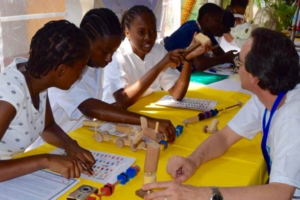
Image: IV Bienal da Aprendizagem – Ciência, Tecnologia, Engenharia e Matemática – Maputo, Moçambique, 2018.
Much is said nowadays about possibilities of knowledge decolonization (GOMES, 2017) and about the epistemicides practiced from the concealment of different knowledge to the Eurocentric model of reason and to what is legitimized as science. In this perspective, “African” women are still located in homogenizing zones, of opacity and location, when the subject is science and academia. Of the various possible Africas, and about which we know little, we will deal with the Mozambican specificity, its relations with Brazil and the paths of STEM careers – an acronym used when talking about the field of Science, Technology, Engineering and Mathematics – followed by women in that country, as is the case with our interviewees – Amália Uamusse, Eugénia Cossa and Tatiana Kouleshova, all professors at the Eduardo Mondlane University – UEM – located in Maputo.
Exchanges of feminist knowledge and practices with Mozambican academics have narrowed since the last Women’s Worlds Congress, which took place in 2017 at the Universidade Federal de Santa Catarina. A group of them came to Brazil hoping to take to Maputo the next Women’s Worlds. The journal Estudos Feministas publishes in volume 28, issue 1, a dossier that consolidates these relationships. “Women’s Worlds 2021: Afro-Mozambican feminist thoughts” is the result of a joint organization between Brazilian Luciana Zucco and Vera Gasparetto with Mozambican Isabel Casimiro. Mutual and positive influences of academic exchanges in the South-South scope are present, facilitated by the common language and reminiscences of a colonial past, without forgetting the present, lived in terms of colonial relations (QUIJANO, 2000; LUGONES, 2005) and the diverse conceptions of gender, crossed by specificities and differences (OYÉWUMÍ, 2004).
In this perspective, we shall deal with a theme that is practically unknown in Brazilian academic environments; we’re talking about Mozambican women scientists covered in the article “Women Participation in Science, Technology, Engineering and Mathematics Courses in Mozambican Higher Education”, written in six hands by the authors mentioned above. The interview was conducted individually with each of them.
1. How was your trajectory, training and motivation that led you to meet the natural sciences, and what is it like to be a woman following this profession?
Amália: I hold a PhD in Organic Chemistry from the University of Rostock – Federal Republic of Germany – and I am an Associate Professor of Chemistry of Natural Products, professor and researcher at the Chemistry Department of UEM. The curiosity to understand the phenomena of nature caught my attention since the beginning of learning natural sciences at school. The fascination with chemical experiments started on the first day that I entered a Chemistry laboratory and never wanted to leave it. There are few women scientists in the natural sciences in Mozambique, particularly in chemistry, which represents a great challenge, as it is an area traditionally dominated by men. That is why women often have to work harder than men to gain recognition and earn a place in the science world.
Eugénia: I started teaching Biology in 1980, right after finishing the 9th grade, without any pedagogical training, due to the lack of teachers that at the time was felt in the country. This motivated me deeply to follow the professorship, studying Biology and Chemistry in 1982, at the Faculty of Education of UEM. Between 1987 and 1992, I studied Biology at the University of Rostock – Germany – increasing my interest for natural sciences. In years 1998 and 2007, I completed a master’s and doctorate in educational sciences in South Africa, at the Universities of Witwatesrands and Western Cape, respectively. In parallel with teaching, I became involved in organizing science camps for girls and various training courses in teaching methodologies based on gender. Right now, I am involved in supervision, research and teaching, always with a component linked to the natural sciences and gender.
Tatiana: During secondary school, in 8th grade, I had already chosen vocational training in car repair [mechanics] or painter, in a school in Russia. I liked the training linked to the technique. In our class there were four girls and 26 boys. At the Polytechnic University I chose the Chemistry course of oil and natural gas treatment. In this case, the class consisted of half girls and half boys. During university study, we girls never felt like the weakest part of the class. About motivation, I have always liked subjects in the natural sciences, preferably mathematics and chemistry, since high school. As a woman in these science topics, I feel very good, because I do what I like to.
2. African populations, throughout their history, have dealt with various crisis situations, such as wars, epidemics, colonialisms. In this context of COVID-19 pandemic, what are the challenges of science in Africa/Mozambique? What contributions have been made from your buildup of research and experience to deal with the situation and what are the future needs?
Amália: The African experience of dealing with adverse situations gives some motivation to face new crises such as the coronavirus pandemic and COVID-19. Among the various challenges facing the sciences in Africa / Mozambique now, we highlight the limited access to technological resources and digital illiteracy, [domains] so necessary for the production and diffusion of knowledge in a situation of physical distancing. The contribution has been in the search for solutions so that the educational process continues to happen. The availability of material resources and the training of human resources are also the main needs, not only for this context of COVID-19, but also for the future development of Sciences in Mozambique.
Eugénia: The challenge is related to the need for technical capacity to carry out practical and laboratory classes for STEM courses, with access to digital platforms associated with the lack of financial resources for acquisition of software from virtual laboratories. With my accumulated experience, I contribute in the formulation of policies, strategies and design of teacher training programs at all levels of education in innovative teaching methodologies, which promote enjoyment and adhesion of students in STEM courses.
Tatiana: The challenges encountered are those of infrastructure for the studies continuity. Our students are away from the university right now, staying at home, where they do not have the possibility to perform tasks or use platforms prepared by teachers, or even Google Classrooms or WhatsApp, due to the lack of financial means to access the Internet, to have computers or personal cell phones etc. Thinking about the future, we will develop projects to minimize such impacts, in addition to looking for funds to buy computers for the students.
3. Regarding sciences as a whole in Africa/Mozambique, what has been the place of women? And in the natural sciences, which is the focus of your article, what actions do you suggest or have taken to give visibility to the presence of women and increase the interest of girls and young women in STEM?
Amália: In Africa/Mozambique, women have been gaining, with many difficulties, some space in recent years in the political, economic and social sphere. This difficulty is even greater in the natural sciences, where they are very few. Some actions with a view to increasing the interest of girls and women have been acting as role models, guiding lectures and conversation groups with school students, to demystify stereotypes and encourage them to choose courses in STEM. The supervision and integration of girls in the research group at the University is another action that aims at motivating them to keep in the career and has a multiplier effect, as these young students also visit schools to show the students that, yes, it is possible, carrying out laboratory experiments under the tutor’s guidance. With these actions, we have worked with the Academy of Sciences of Mozambique and the National Commission of the United Nations Organization for Education, Science and Culture (UNESCO).
Eugénia: The place of women in science in Africa and Mozambique is already starting to be highlighted, although some taboos on the performance of women in the natural sciences still persist. The universities, in partnership with the Ministry of Science and Technology, Higher Education and Professional Technicians, carry out initiation activities and Science Olympics that aim at motivating young people, especially girls, from secondary schools and professional techniques to enter courses in the STEM areas and prepare them to continue their studies in these areas, increase the number of graduate students and the creation of new scientists, which we call “Scientist of tomorrow”.
Tatiana: Since 2011, the authors have been developing projects in the STEM area, linked with attempts to awaken the interest of girls in the area of Natural Sciences, in collaboration with UNESCO at Mozambique. These attempts were based on carrying out experiments in the areas of chemistry, physics and biology, together with girls from the district schools, using available local materials. In this context, the authors published in 2017 the book “Chemistry without a laboratory”, in which the chemical experiments that can be carried out anywhere, without any danger to the student’s health, were selected.
4. Brazil and Mozambique have historical relations mediated by the Atlantic Ocean that unites them. How to intensify knowledge circulation and research in the field of sciences, both social and natural, building bridges that unite the two countries and the two continents?
Amália: The historical ties that unite Brazil and Mozambique, and the common language, open space for deep relationships between the two countries and the circulation of knowledge in different fields of science, both social and natural. The creation of joint research groups, the mobility of scientists and students, the establishment of joint projects in areas of common interest, as well as participation in scientific events and the publication of scientific articles in journals in both countries may intensify knowledge circulation. Academic exchange programs that have been successful in the past, AULP/CAPES, ProÁfrica/CNPq, among others, could be revitalized or used as models for future collaborations.
Eugénia: We need to capitalize on the experience we had with the International Pro-Mobility Program of the Association of Portuguese Language Universities (AULP/CAPES) for the mobility of professors and students in the areas of training and research. We need to continue with the ProÁfrica Program, especially for the training of university professors in priority areas, such as, for example, STEM, which remains challenging in our country. In Mozambique, we still have about 50%, of the total of 5,900 professors, with a degree level, teaching at universities.
Tatiana: [We can] intensify knowledge circulation and research in the field of sciences, both social and natural, it can be through the holding of International Conferences, both in Mozambique and in Brazil, exchanging experiences, ideas, etc., workshops, meetings for interests and much more, if we have permanent relationships.
References
GOMES, N.L. O movimento negro educador: saberes construídos nas lutas por emancipação. Petrópolis: Vozes, 2017.
LUGONES, M. Colonialidad y género. Tabula Rasa [online]. 2008, no. 9, pp. 73-101, ISSN: 1794-2489 [viewed 5 June 2020]. Avalaible from: http://www.scielo.org.co/scielo.php?script=sci_arttext&pid=S1794-24892008000200006&lng=en&nrm=iso
OYÉWUMÍ, O. Conceptualizing Gender: The Eurocentric Foundations of Feminist Concepts and the challenge of African Epistemologies. African Gender Scholarship: Concepts, Methodologies and Paradigms. CODESRIA Gender Series. Volume 1, Dakar, CODESRIA, 2004.
QUIJANO, A. Colonialidad del poder y clasificación social. Journal of World-Systems Research [online], 2000., vol. 11, no. 2, pp. 342-386. ISSN: 1076-156X [viewed 5 June 2020]. DOI: 10.5195/jwsr.2000.228. Avaliable from: https://jwsr.pitt.edu/ojs/index.php/jwsr/article/view/228
To read the article, access
UAMUSSE, A.A.; COSSA, E.F.R. and KOULESHOVA, T. A mulher em cursos de ciências, tecnologia, engenharia e matemática no ensino superior moçambicano. Rev. Estud. Fem. [online]. 2020, vol. 28, no. 1, e68325, ISSN: 1806-9584 [viewed 5 June 2020]. DOI: 10.1590/1806-9584-2020v28n168325. Avaliable from: http://ref.scielo.org/ztxg4r
External links
Revista Estudos Feministas – REF: www.scielo.br/ref
Facebook: @revistaestudosfeministas
Instagram: @refeministas
About the authors
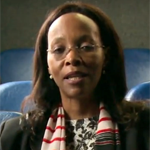 Amália Alexandre Uamusse is an associate professor at the Faculdade de Ciências da Universidade Eduardo Mondlane (UEM) – Mozambique, with a PhD in Natural Sciences with a specialty in Organic Chemistry from the University of Rostock – Germany. She is Academic Vice-Rector of UEM. Author’s email: amaliauamusse@gmail.com.
Amália Alexandre Uamusse is an associate professor at the Faculdade de Ciências da Universidade Eduardo Mondlane (UEM) – Mozambique, with a PhD in Natural Sciences with a specialty in Organic Chemistry from the University of Rostock – Germany. She is Academic Vice-Rector of UEM. Author’s email: amaliauamusse@gmail.com.
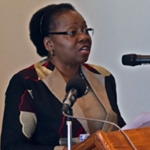 Eugénia Flora Rosa Cossa is an Associate Professor at the Faculdade de Educação da UEM, PhD in Education Sciences from the Universities of Western Cape – South Africa. Currently she is National Director of Higher Education at the Ministry of Science and Technology, Higher Education and Professional Technician. Author’s email: eugenia.cossa@gmail.cossa.
Eugénia Flora Rosa Cossa is an Associate Professor at the Faculdade de Educação da UEM, PhD in Education Sciences from the Universities of Western Cape – South Africa. Currently she is National Director of Higher Education at the Ministry of Science and Technology, Higher Education and Professional Technician. Author’s email: eugenia.cossa@gmail.cossa.
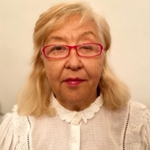 Tatiana Kouleshova is an associate professor at the Faculdade de Ciências da UEM, PhD in Natural Sciences, with a specialty in Physical and Inorganic Chemistry, from Moscow State University – Soviet Union. Author’s email: tatianakuleshov@yahoo.com.br.
Tatiana Kouleshova is an associate professor at the Faculdade de Ciências da UEM, PhD in Natural Sciences, with a specialty in Physical and Inorganic Chemistry, from Moscow State University – Soviet Union. Author’s email: tatianakuleshov@yahoo.com.br.
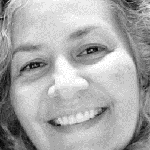 Ana Maria Veiga is a professor in the Graduate course of History at Universidade Federal da Paraíba, with an interdisciplinary postdoctoral degree in Human Sciences at the Universidade Federal de Santa Catarina. She is editor of Sæculum – History journal, dissemination editor of Estudos Feministas and leader of the ProjetAH group: History of Women, Gender, Images, Backlands. E-mail: anaveiga.ufpb@gmail.com. Lattes: http://lattes.cnpq.br/5507849878186996.
Ana Maria Veiga is a professor in the Graduate course of History at Universidade Federal da Paraíba, with an interdisciplinary postdoctoral degree in Human Sciences at the Universidade Federal de Santa Catarina. She is editor of Sæculum – History journal, dissemination editor of Estudos Feministas and leader of the ProjetAH group: History of Women, Gender, Images, Backlands. E-mail: anaveiga.ufpb@gmail.com. Lattes: http://lattes.cnpq.br/5507849878186996.
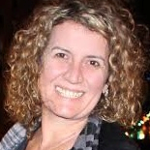 Vera Fátima Gasparetto is a postdoctoral fellow in the Interdisciplinary Graduate Program in Human Sciences (PPGICH / UFSC), Gender Studies Area, Fellow of the National Postdoctoral Program/Capes, Researcher at Instituto de Estudos de Gênero e do Centro de Estudos Africanos (CEA) da Universidade Eduardo Mondlane (UEM – Mozambique. E-mail: gasparettovera@gmail.com. Lattes: http://lattes.cnpq.br/1869239071282523
Vera Fátima Gasparetto is a postdoctoral fellow in the Interdisciplinary Graduate Program in Human Sciences (PPGICH / UFSC), Gender Studies Area, Fellow of the National Postdoctoral Program/Capes, Researcher at Instituto de Estudos de Gênero e do Centro de Estudos Africanos (CEA) da Universidade Eduardo Mondlane (UEM – Mozambique. E-mail: gasparettovera@gmail.com. Lattes: http://lattes.cnpq.br/1869239071282523
Como citar este post [ISO 690/2010]:


















Recent Comments